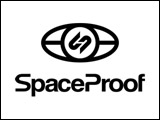We are embarking on a wide-reaching transition. This transition is variously called the Green New Deal, Path to Resilience, a Good War, “addressing climate change”, a Just Transition, Saving Us, or “avoiding a climate disaster”. I realize that the names/terms refer to slightly different things, but in my opinion, they have many things in common.
Canada recently announced the 2030 Emissions Reduction Plan (ERP), a name which seems to mean something much narrower than addressing climate change, until one digs deeper.
The March 29, 2022, Environment and Climate Change Canada article, announcing and describing the ERP states, “… measures that will ensure that we reduce emissions across the entire economy to reach our emissions reduction target of 40 to 45 percent below 2005 levels by 2030 and put us on a path to achieve net-zero emissions by 2050.”
Similar targets appear in the United Nations Environment Program (UNEP) 2018 Emissions Gap Report and in recent global climate change discussions.
These targets are very important. While there is much talk in the news about the need for a more detailed plan, it is my opinion that the targets are of primary importance, and it is up to provinces, municipalities, towns and cities, companies and individuals to formulate our own plans to meet those targets. Some are already basing their 5-, 15-, 25-year plans on these targets.
There is also talk about “We know what to do; we just need to do it”. A more careful analysis of this will quickly show that we know some of the things that we need to do, such as building energy-efficient buildings and driving electric cars, but the challenges we face are much bigger than that and the solutions are not at all clear.
Bill Gates has written a very insightful and informative book, How to Avoid a Climate Crisis: the solutions we have and the breakthroughs we need. His book is full of hard-nosed business-based observations and analyses, as well as results from Gates’ multi-million dollar explorative projects.
A list of technologies that need to be developed in order to get to zero emissions globally, according to Gates, is as follows:
- Hydrogen produced without emitting carbon
- Grid-scale electricity storage that can last a full season
- Electrofuels
- Advanced biofuels
- Zero-carbon cement
- Zero-carbon steel
- Plant- and cell-based meat and dairy
- Zero-carbon fertilizer
- Next-generation nuclear fission
- 1Nuclear fusion
- Carbon capture (both direct air capture and point capture)
- Underground electricity transmission
- Zero-carbon plastics
- Geothermal energy
- Pumped hydro
- Thermal storage
- Drought- and flood-tolerant food crops
- Zero-carbon alternatives to palm oil
- Coolants that don’t contain F-gases (where F refers to fluorine)
Earlier, I applauded the ERP for naming emission reduction targets for the years 2030 and 2050. However, the ERP treatment of these targets shows an early weakness, in that the main target is the one attributed to 2030, with the hope that this will put us on the path to meeting the 2050 target (zero net emissions). Gates maintains that this is not the best approach.
It is possible that if we focus on the 2030 target first, we may achieve limited emissions reductions but in ways that do not contribute to, and may even work against, achieving the 2050 target. It would be better to determine what is necessary to achieve the 2050 target first and then determine what could be achieved by 2030. Gates provides an example, but space does not allow its inclusion in this article.
I would like to pick up on the “2050 target to be primary over the 2030 target” theme in a future article. There are also some further ideas from Gates’ book, such as “Green Premiums”, which is the difference between the price of a fossil fuel-based item and the price of a zero-carbon alternative that I would like to explore.




